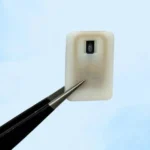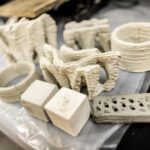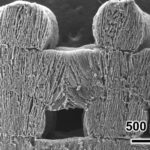Researchers at the University of Louisville have converted organic non-glycerol (MONG) waste from soy biodiesel plants into copolymers suitable for 3D printing.
Led by Dr. Jagannadh Satyavolu, the team’s approach addresses both environmental concerns and economic inefficiencies by repurposing MONG, traditionally destined for landfills. Published in the Journal of Bioresources and Bioproducts, their study outlines a process to stabilize MONG for 3D printing.

Through acid and acid + peroxide treatments, MONG underwent significant transformations, resulting in improved thermal stability and compatibility with thermoplastic polymers for 3D printing filaments. These treatments effectively decreased soap content, increased crystallinity, and enhanced glycerol concentration, indicating successful copolymerization potential.
Furthermore, analyses conducted on the physicochemical properties of treated MONG reaffirmed its potential as a sustainable alternative to synthetic polymers in natural fiber composites (NFC) for 3D printing.
By repurposing soy biodiesel waste, this study not only mitigates environmental impact but also propels the 3D printing industry towards greater sustainability and resource efficiency, emphasizing the importance of circular economy principles in manufacturing.
You can read the full research paper, titled “Utilization of residual fatty acids in matter organic non-glycerol from a soy biodiesel plant in filaments used for 3D printing” at this link.
Source: phys.org










